





Tin chloride
Tin chloride is chemical compound of tin and chlorine which is hydrolyzed and oxidized, dissolved in water and forms a small deposit. Connection 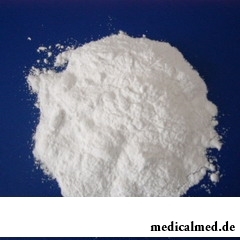 reacts with alkalis and ammonia.
reacts with alkalis and ammonia.
Receiving tin chloride and its property
Tin chloride represents white powder which boils and melts at a temperature of 240 degrees, and also can be used as an oxidizer and the recovering connection.
This connection was for the first time received in 1597 in Germany by the famous chemist A. Libavy.
There are several main ways of receiving tin chloride to which it is possible to carry:
- direct synthesis in the course of which the test tube is filled with the granulated tin and carry out a gas tube, and then pass chlorine, creating reaction of tin and gas;
- synthesis with carbon dioxide at which place tin in a test tube and fill space with carbon dioxide, and then carry out the purified chlorine;
- chlorination of anhydrous tin at which under draft carry out a chlorine stream to a test tube with tin.
Tin chloride possesses exciting action concerning a nervous system, and also has local antimicrobic effect.
Tin chloride use
Tin chloride was widely used in the food industry in which it is marked as E 512 nutritional supplement. Also this connection is actively applied at production of ceramic and glass products, to whitening of crystals of sugar, as the stabilizer of salt and when processing silk fabrics.
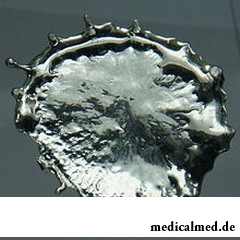
In chemical industry this chloride is used during creation of paints, soap and fragrances.
E 512 nutritional supplement represents emulsifier which is added to foodstuff to give them the form and to keep their structure for a long time. In food stuffs tin chloride works as the stabilizer.
E 512 nutritional supplement possesses weak recovery action, promotes mixing in products of fats and waters, and also improves assimilation by a human body of oil and oil-containing products. In Europe E 512 additive is a part of fish canned food and tinned vegetables.
Tin chloride is applied to coloring of fabrics, by impregnations of fabric surfaces and protection of furniture against pollution.
Contraindications
Tin chloride as nutritional supplement is prohibited to use in Russia and some CIS countries. This connection in the food industry can make negative impact on food stuffs. At consumption this chloride is capable to cause serious intoxication.
During life the average person develops neither more nor less two big pools of saliva.
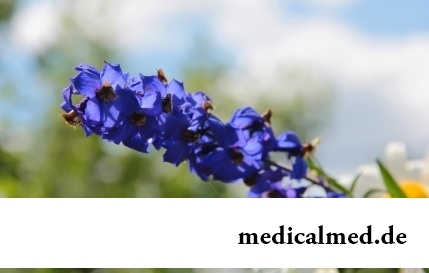
It is impossible to imagine human life in which there would be no plants. Practically in each apartment and any of productions...
Section: Articles about health
No, probably, the person who would not have cold. Cold, cough, a headache – these symptoms are known to everyone. The peak of catarrhal diseases is the share of fall. SARS already came to schools and kindergartens, flu slowly makes the way to the cities, in a word, з...
Section: Articles about health
The modern person not always manages to find housing in the environmentally friendly region and such work which would not do harm to health. With food stuffs at first sight the situation is much better: shops are overflowed with goods which are positioned by producers as very useful and absolutely safe. Many Russians are absolutely sure that the choice of products with marking "bio", "эко" or "organik" guarantees them and members of their families an optimal variant of food. To a sozhala...
Section: Articles about health
The way of life of people promptly changes from year to year: if about ten years ago the personal computer was not in each family...
Section: Articles about health
Visit of doctors – business not the most pleasant, and many people do not hurry to undergo necessary planned inspections. Such behavior is extremely thoughtless and improvident. Our health is necessary not only to us: wellbeing of darlings, children, grandsons and престар...
Section: Articles about health
Aspirin (acetylsalicylic acid) – one of those drugs which are known literally to all. It is available in each home first-aid kit, and many accept it at the first signs of an indisposition, often without having a fair idea of properties and therapeutic effect of drug. Meanwhile, impact of aspirin on a human body is very various, and is not always favorable. About it it is important to foreknow, in order to avoid emergence of problems with health....
Section: Articles about health
Residents of big cities quite often have a disease which is known as the syndrome of chronic fatigue (SCF) today. This illness...
Section: Articles about health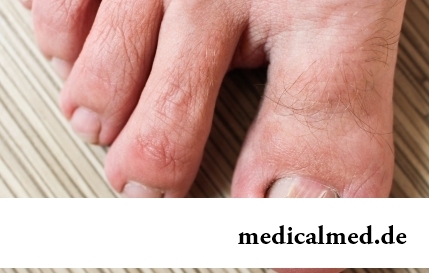
The word "onikhokriptoz" is unfamiliar to most of people, meanwhile quite so physicians call very widespread problem: the growing of edge of a nail into surrounding fabrics causing inflammatory process. Usually the illness affects thumbs of legs, and is followed покр...
Section: Articles about health
Such trouble as the milkwoman's attack, at least once in life happened almost to each woman. Prevalence of a disease is explained by the fact that the causative agent of an illness belongs to the so-called opportunistic microflora living on mucous membranes of any human body and which is becoming more active only under favorable conditions. If you had curdled allocations from a vagina, the itch and burning in external genitals, or painful feelings disturb at sex...
Section: Articles about health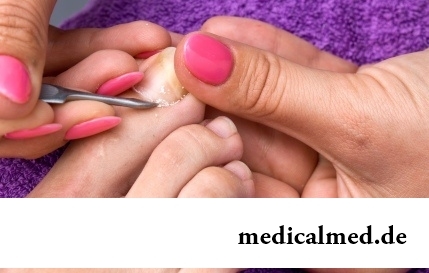
Beauty shop – the place which is associated only with positive emotions: joy, pleasure, relaxation. One...
Section: Articles about health
During foot walks blood moves on vessels more actively and one and all bodies are supplied with a large amount of oxygen. It affects the state of health of the person very positively....
Section: Slideshow
For the person who daily since morning gathers for work it is very important to wake up vigorous and ready by day of work. Actually, each of us experiences difficulties with this, at first sight, simple business from time to time. After night rest exert impact on a condition of an organism the weather which collected for several days fatigue, household and office problems, quality of a dream and many other factors....
Section: Articles about health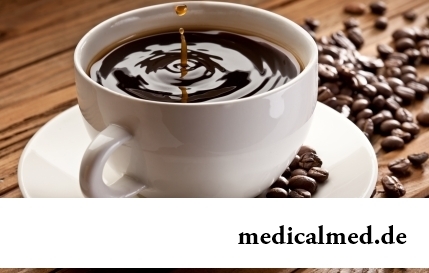
Coffee – favourite drink of many. For the last decades it more than once already declared very harmful, extremely useful and even...
Section: Articles about health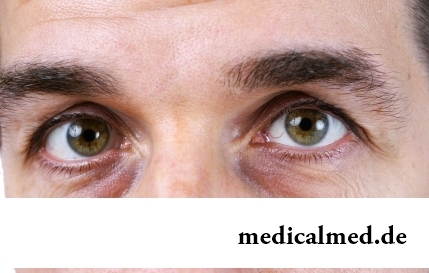
Zone hypostases under eyes - very widespread problem giving to people is a lot of inconvenience. Hypodermic fabric in these parts has very loose structure and almost does not contain collagenic fibers. Besides, the skin covering подглазья constantly is exposed...
Section: Articles about health
The business lady, the become mother, it is necessary to solve an array of problems. But of them is main: how to combine the beloved child and work? What traps trap the working mother and how she needs to behave?...
Section: Slideshow
Dark circles (bruises) under eyes – a shortcoming with most of which often fight against the help of cosmetics (proofreaders, salons...
Section: Articles about health
Neurosis is called pathology of a nervous system at which deviations in functioning of the highest nervous processes are observed. Most often - owing to yet not strengthened mentality - children are subject to neurosises. Premises to emergence of such disturbances can become нез...
Section: Articles about health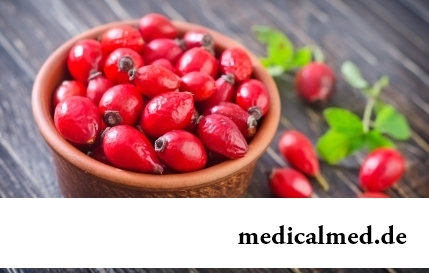
Tea is loved and use almost everything. This drink has tonic properties, contains the tannins capable to suppress activity of causative organisms. Recently great popularity was gained by teas with vegetable additives. The medicative herbs, spices and fruit which are a part of such mixes enrich drink with vitamins and microelements, increasing its nutritional value and creating additional curative effect....
Section: Articles about health
History of use of an anesthesia during operations contains more than 160 years. Annually in the world hundreds of thousands surgical вм are carried out...
Section: Articles about health
Cold, puffiness of a nose, itch, the watering eyes - characteristic symptoms of the allergic rhinitis resulting from hit of allergens (pollen, house dust, hair of animals, etc.) on a mucous membrane of a nose. Unpleasant feelings often deliver беспоко...
Section: Articles about health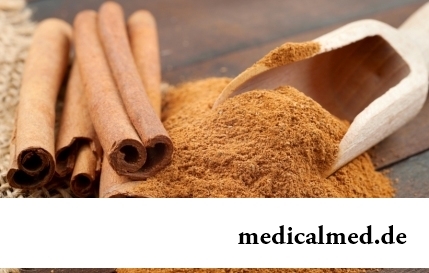
Ayurveda - the most ancient tselitelsky practice which came to us from India. It represents the doctrine about maintenance of physical, psychological and moral health of the person by means of the complex of procedures including a diet, cleaning of an organism, breathing exercises, massage, and in case of a disease - and medicinal therapy. The healers practicing Ayurveda assign very important part to spices, and at the heart of Ayurvedic drugs, as a rule, there are they. It is considered that spices not of t...
Section: Articles about health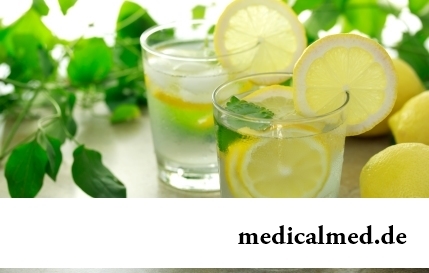
Water with a lemon - idle time in preparation drink which supporters of a healthy lifestyle already managed to appreciate. Upo...
Section: Articles about health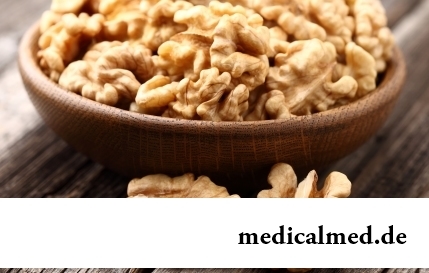
With age in a human body harmful substances collect. We receive them with food and water, at inhalation of the contaminated air, reception of medicines, use of household chemicals and cosmetics. A considerable part of toxins accumulates in a liver, osnovno...
Section: Articles about health
Stroke (acute disorder of cerebral circulation) – one of the most widespread neurologic diseases. Annually in the world more than 6 million people die of this illness. From the survived patients about 80% become disabled people, and nearly a third from them needs afterwards permanent care. In fact, the stroke creates a situation at which a part of cells of a brain loses blood access, loses an opportunity to receive oxygen and nutrients, and perishes. As a result of a razviv...
Section: Articles about health
Season of activity of viral infections in the heat. Everyone can get sick, but probability of this unpleasant event it is possible and it is necessary miny...
Section: Articles about health
The summer of this year in Russia was very ambiguous. Regions suffered from a merciless heat, from pouring rains, the hail from time to time dropped out, then there was again a heat which alternated with rainfall again. Many people suffer from such sharp changes of weather...
Section: Articles about health
Antibiotics - - it is possible to call the chemical compounds suppressing growth of bacteria the break in the field of medicine which allowed to save mankind from many diseases incurable earlier: tuberculosis, plague, syphilis and many others. The contribution of drugs to rescue of people from epidemics of dangerous infections is huge, however at careless use antibiotics are capable to cause to an organism serious damage. Negative action can be shown in the form of easing of immunity, disturbance of balance of microflora in кишеч...
Section: Articles about health
